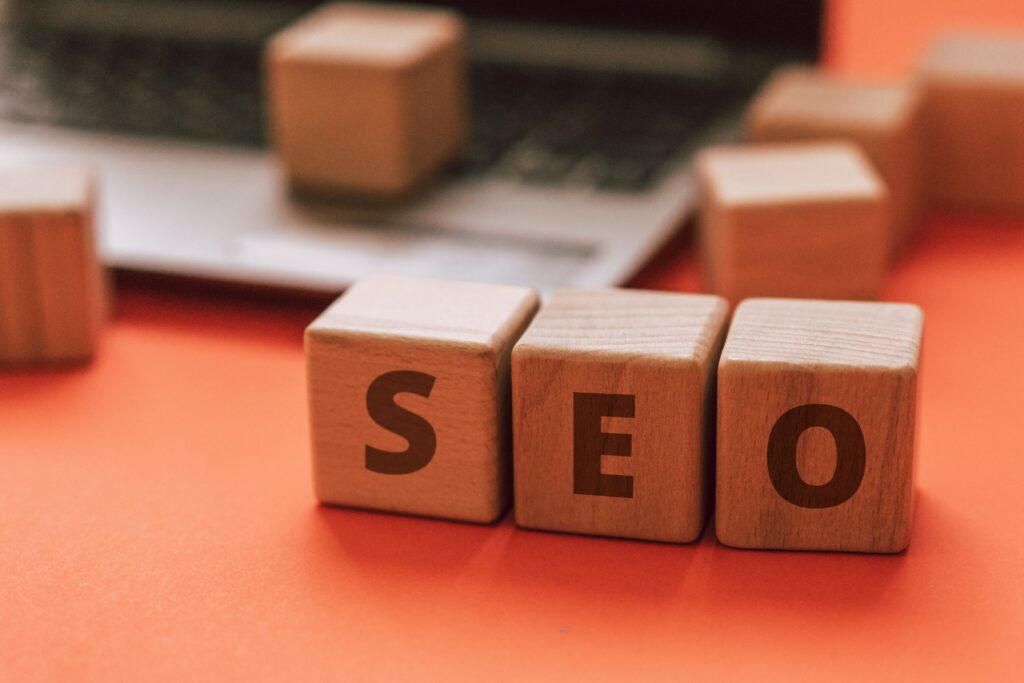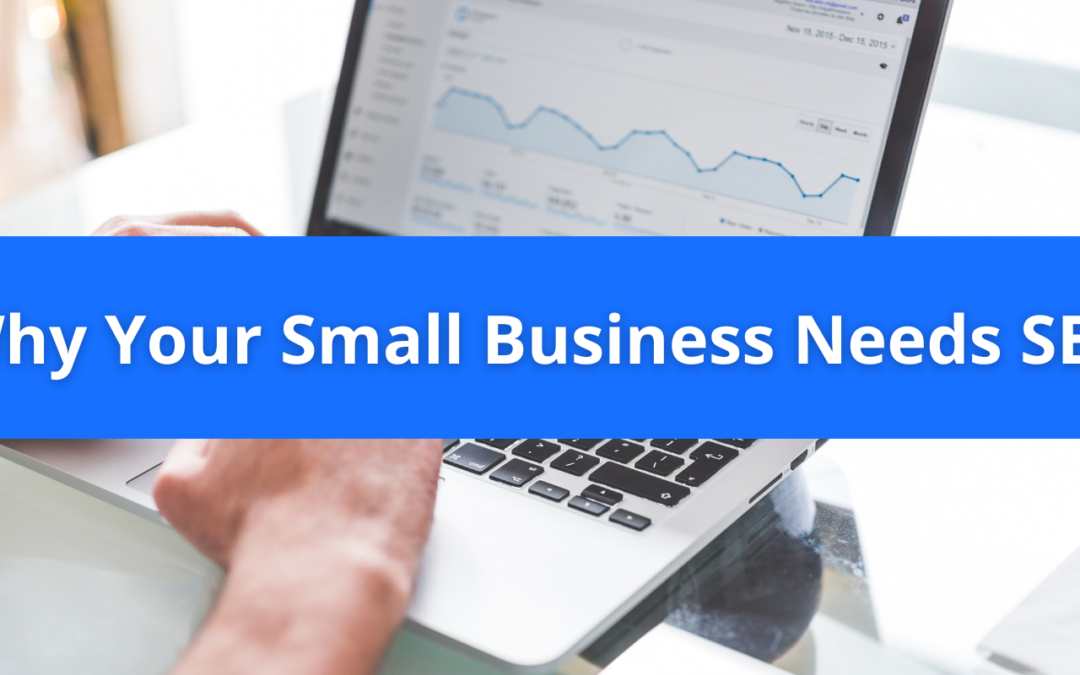Small businesses are a big part of the U.S. economy, comprising over half of all American businesses and employing over half of the American workforce.
Small businesses have many advantages over their larger counterparts. Their size allows them to be nimble, adaptable and agile in the face of change. And when it comes to marketing, small businesses can often benefit from the big guys’ mistakes.
But one advantage that small businesses don’t enjoy is very large advertising budgets. That’s why many small business owners rely on SEO to get their websites in front of potential customers who are looking for products like theirs. But how?
What Is Search Engine Optimization?
Search engine optimization (SEO) is a technique that helps websites rank higher in search results for relevant keywords. It’s about making sure that when people search for something on Google or other search engines, you’re one of the top results returned.
SEO isn’t just about getting your website high in search engine rankings. It’s also about making sure that people who land on your site stay there and then take action, whether it’s signing up for a newsletter or buying something from you online.
How Does SEO Work?
You can think of SEO like a game of chess: The first player makes his move, then the second player makes his move, and so on until someone wins. In this case, the objective is to win customers by making sure they find your site when they want what you’re offering. With so many sites competing for attention online, it’s essential to have an effective strategy in place if you want your small business to succeed online.
Search engines like Google, Yahoo and Bing scan websites for keywords and then list them in their search results based on how relevant those words and phrases are to the topic at hand. For example, if you run a bakery and enter “chocolate cupcakes” into Google, you will see links to websites that use those terms on their pages.
In order to be included in these results, you need to have high quality content on your site that includes keywords related to your business. For example, if you run a bakery and want people searching for “chocolate cupcakes” to find your website, you should include those words on your site somewhere.
There are three main techniques used by businesses to improve their rankings on Google and other search engines:
Content optimization: This includes creating unique and relevant content for each page on your website. You can also use keywords in your content and make sure that they are relevant to what people are searching for online; this helps Google understand what your business is all about.
Technical optimization: This includes making sure that your website is optimized for search engines like Google so that they can find it easily; this would include
Link Optimization: One of the main reasons why Google and other search engines rank websites is based on their popularity. The more popular a web page is and the more links point to it, the higher it will rank in search results. This is because Google and other search engines use links as a trust signal to determine how relevant certain content is to users’ queries.

What are the benefits of SEO For small businesses?
Optimizing your website for search engines can benefit you in a number of ways, including:
- Increased traffic – More people will visit your website when it ranks higher on search engine results pages (SERPs). This can help increase brand awareness and drive sales.
- Better customer experience – If people are searching for products or services like yours, then having a high SERP ranking can help ensure that customers who find you are more likely to be happy with their purchase.
- Lower advertising costs – Paid ads often cost more than organic results because they appear at the top of SERPs alongside paid ads, but organic results are free.
- More conversions – Visitors who come from search engines are much more likely to convert into paying customers than those who come from social media sites or email campaigns
- Improved brand awareness – When people see your company name or logo when they search for something related to your business, they will be more likely to recognize it as an authority on that subject matter — which will boost credibility in their eyes
Which businesses need SEO the most?
Any business that wants to grow fast should use SEO. Even if you’re just starting out with one location and a handful of employees, you need SEO to get found online by potential customers looking for your services. If someone searches for “plumbing” on Google, does your company show up at the top of the page? If not, then someone else will get their business — someone who’s been optimizing their website for search engines.
How much should a small business spend on SEO?
SEO is one of the most cost-effective marketing investments you can make. The average return on investment for SEO is about $10 for every $1 spent, according to Search Engine Land. But that doesn’t mean every business should invest the same amount in SEO.
The amount you spend depends on a number of factors, including:
Your budget
If you’re starting out and don’t have much money to spend, start with a smaller budget and build up as your business grows. Small businesses often start out with just one or two employees — and sometimes even less than that! You might not need to hire an SEO expert right away because you can do some of the work yourself at first. If you’re not sure what kind of budget your business needs, ask yourself where else you could spend this money and whether there are other areas where it might be better spent right now (for example, if your website needs updating).
Your industry
Some industries are easier for SEO experts to rank in than others, so if you’re in an industry where there aren’t many search results for keywords related to your business, it may take longer for your site to appear on page 1 of Google’s results pages
How much revenue your website generates
The biggest factor in determining how much you should invest in SEO is how much money you’re making from your website. If your website is making $50,000 per month and bringing in half of your total revenue, then it’s worth investing more than if it’s only bringing in $500 per month.
The other thing to consider is what percentage of your customers come from search engines — not just Google, but also Bing, Yahoo, and others. If most of your traffic comes from social media or paid ads (or both), then you may be able to get away with spending less on SEO. However, if your main source of traffic is organic search, then you should probably put some money into improving that traffic source.
What Is Local SEO & How Can My Small Business Use It?
Local SEO is a subset of general SEO that focuses on getting your website found by people who are searching for businesses like yours in your location. So if someone in Akron searches for “florist near me,” they should find you—not just any florist in Ohio or even across the world!
According to studies by BrightLocal and Moz Analytics, local search results account for about 60 percent of all searches on Google, Bing, and Yahoo! This means that if your business isn’t showing up in local search results, it’s missing out on over half of its potential customers!
In fact, research shows that nearly 90 percent of consumers turn to search engines to find local business information — and 88 percent say they’ll visit a particular website after searching for a local business online. And more than half of those searchers will visit a restaurant or retail location within 24 hours after finding it online.
So how do you make sure your business appears at the top of these searches? By optimizing your site for local searches and creating listings on Google Business Profile (formerly Google My Business), Yelp and other directories that allow businesses to claim their listings.

Google Business Profile
Google Business Profile is a free service offered by Google that helps you to create a business listing and enhance the search results of your company on Google.
Google Business Profile helps you to create a business listing with rich details about your company. With the help of this tool, you can list out all the important information that your customers might be looking for, such as:
- Phone number/email address
- Business hours
- Location (address)
- Website URL (if any)
- Photos of your business location
- Reviews (if any)
- Social media profiles (Facebook, Twitter, LinkedIn etc.)
You can also add additional information like categories, products/services, logo etc., as per your wish. Once done with all these steps, you are ready to go live with your business listing on Google Search.
The Bottom Line: Should My Small Business Invest In SEO in 2023?
In addition to boosting your site’s overall traffic and revenue, SEO can help improve your rankings on specific keywords. This can lead to more targeted traffic and leads, as well as increased conversions for specific pages or products.
The best part? You don’t need a lot of money or resources to get started with SEO. You just need to know how it works and how your business can benefit from it. If you’re looking to get started with SEO for your small business, learn more about our SEO services today.


